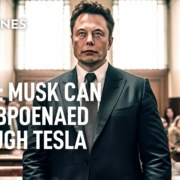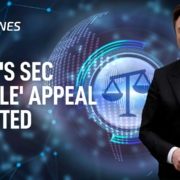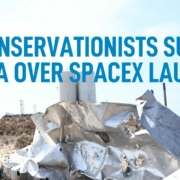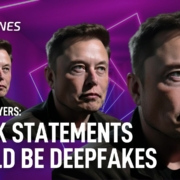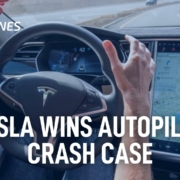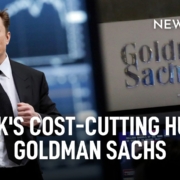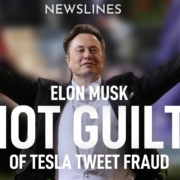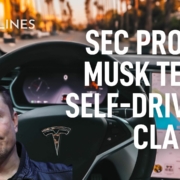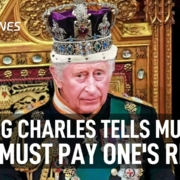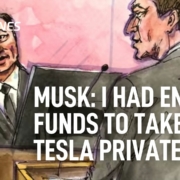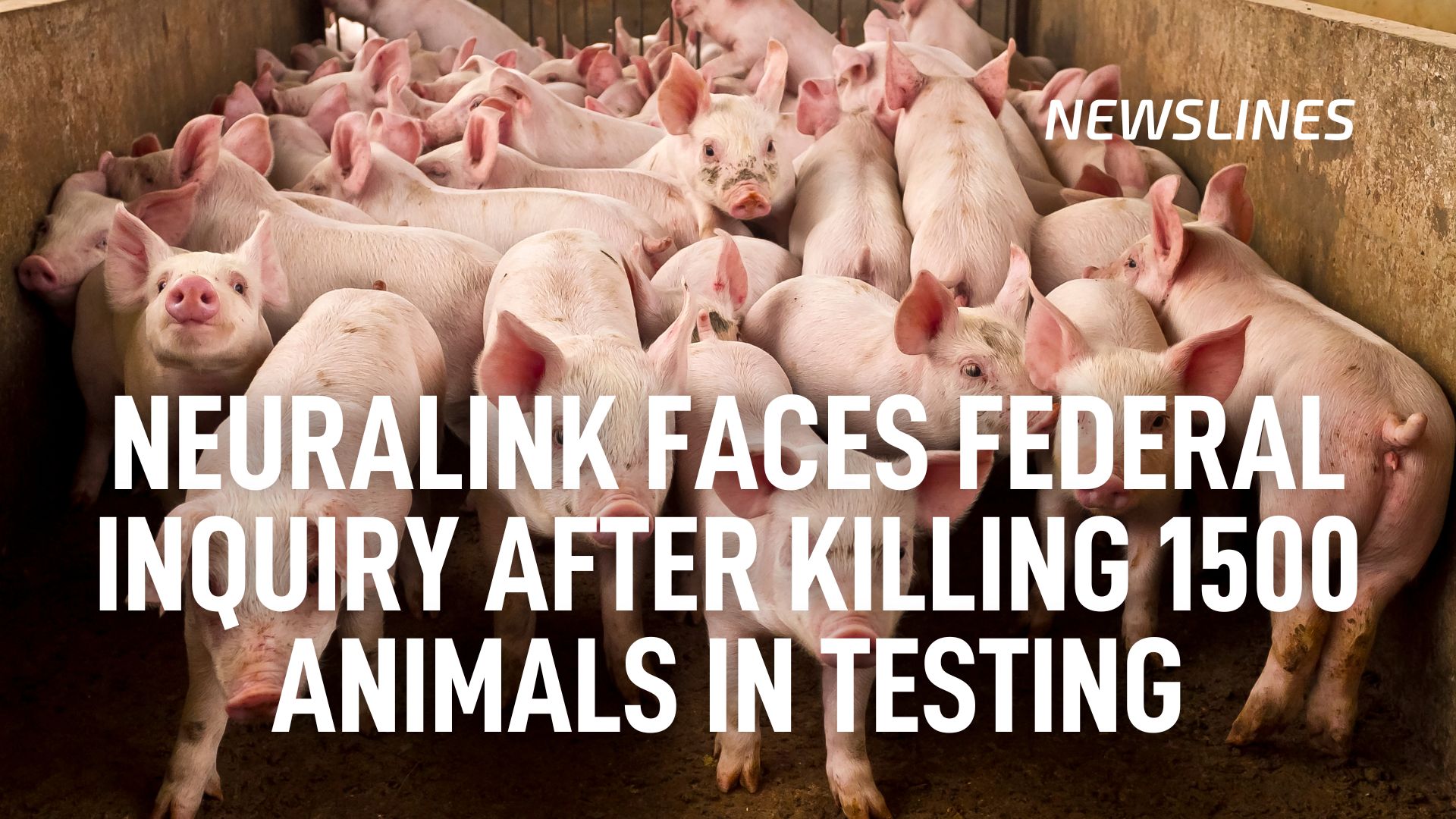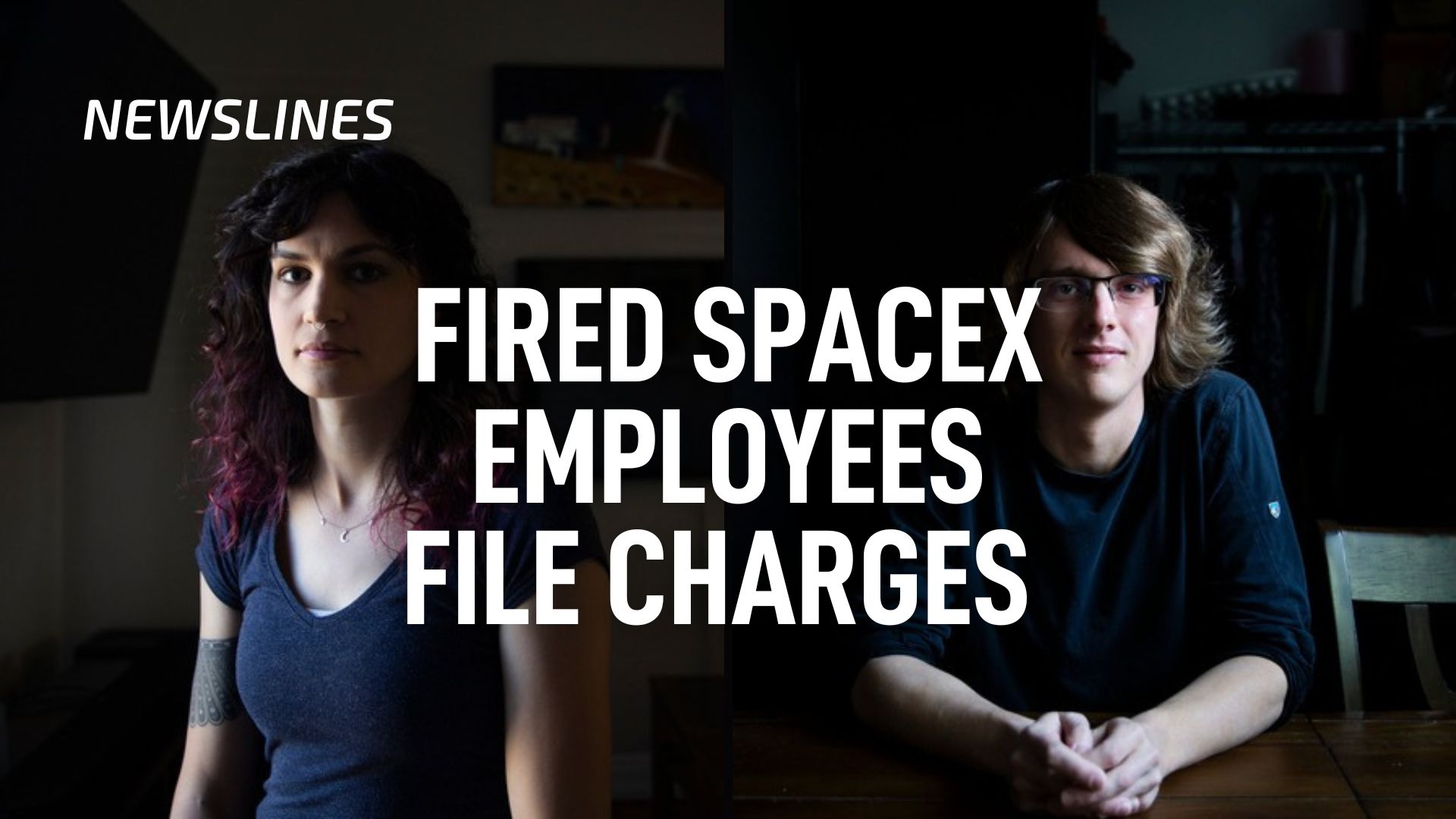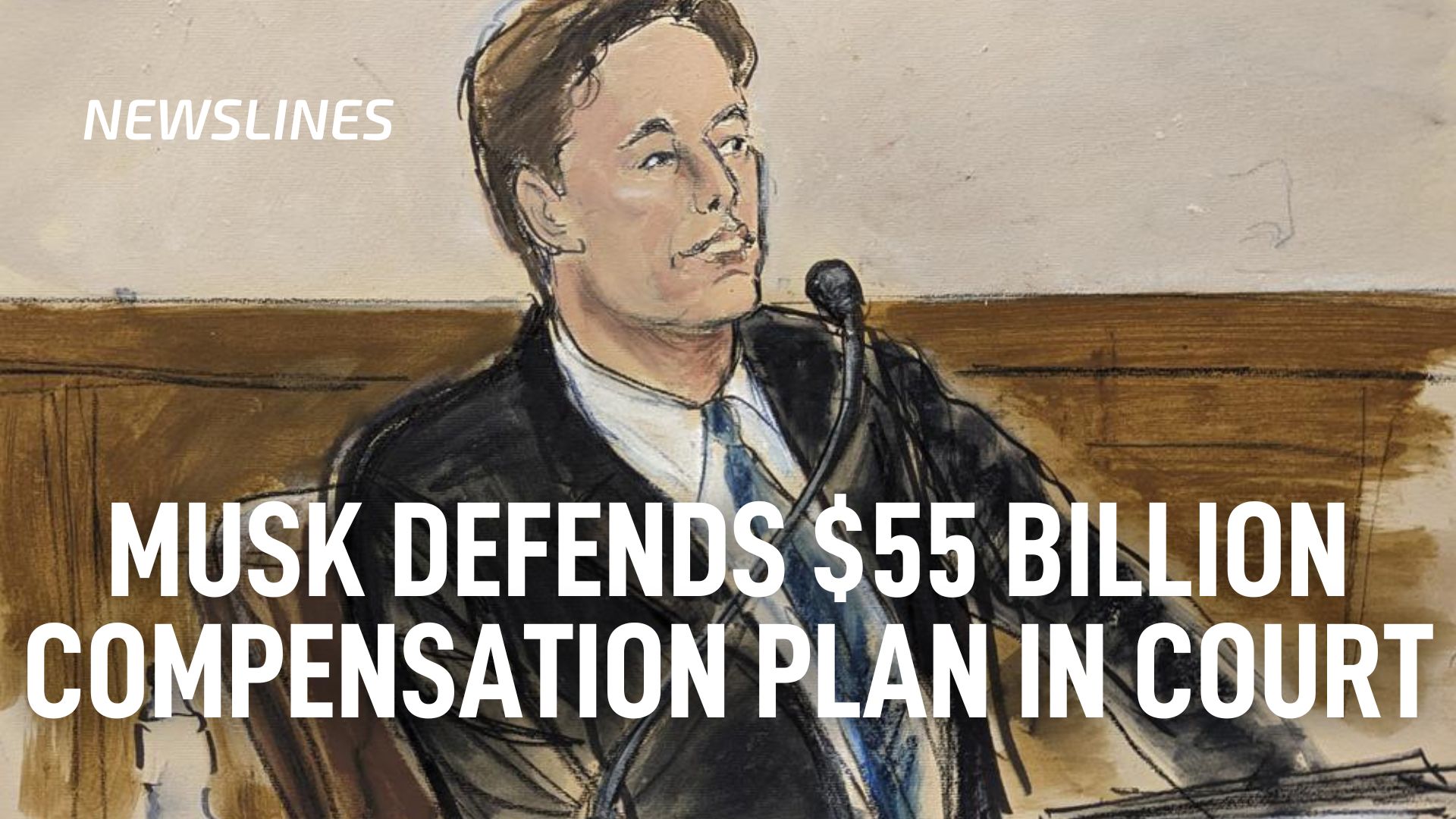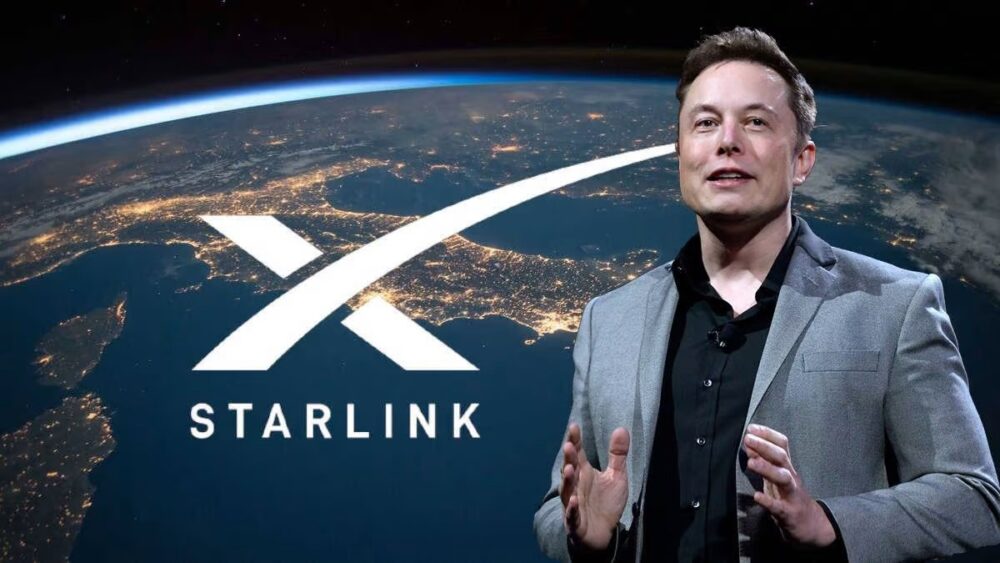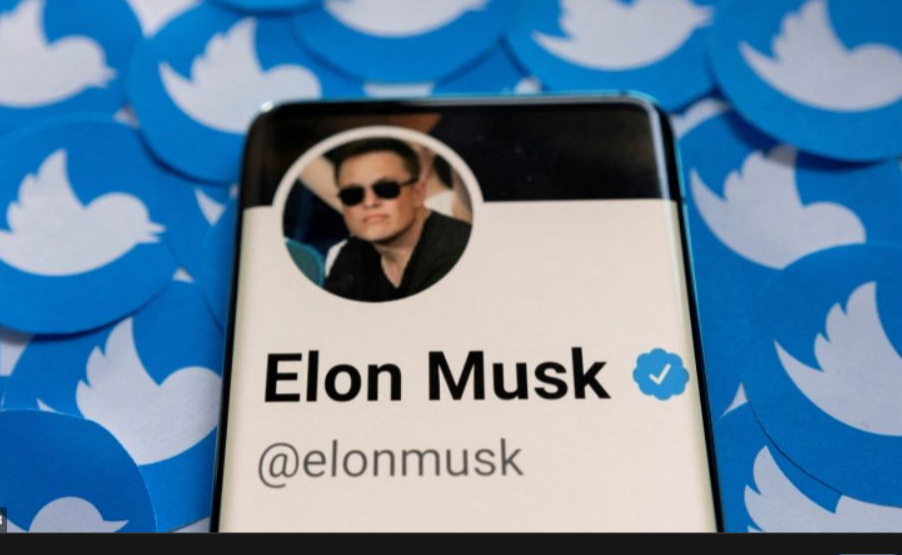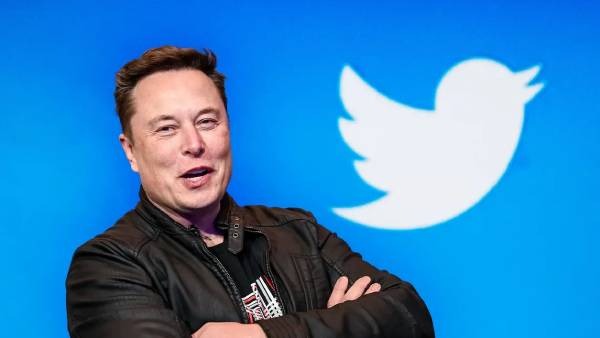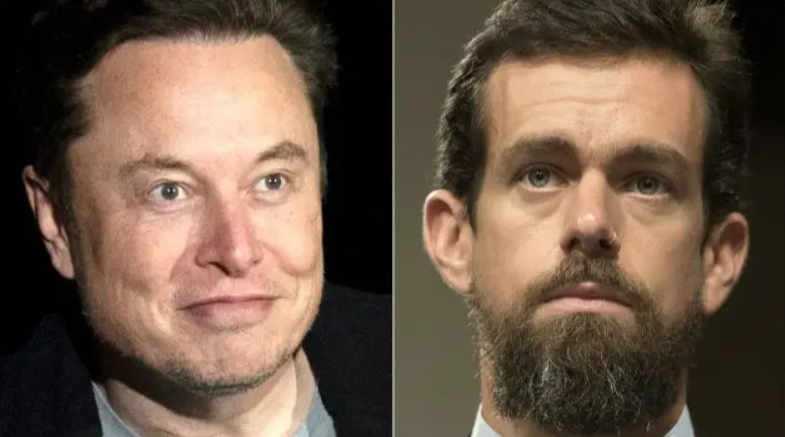Judge: Musk can be subpoenaed through Tesla
A federal judge rules that the U.S. Virgin Islands can serve Musk a subpoena through Tesla, as part of the government’s lawsuit against JPMorgan Chase over its ties to Jeffrey Epstein. The ruling comes after lawyers for the Virgin Islands government said that it had not been able to serve Musk personally with the subpoena, as is the norm. Nor did a Musk lawyer reply to a request to accept the subpoena for his client. The judge authorizes the U.S. Virgin Islands to:
arrange alternative service of its Subpoena to Produce Documents by serving Elon Musk via service upon Tesla Inc.’s registered agent.
Musk’s SEC ‘muzzle’ appeal rejected
The 2nd U.S. Circuit Court of Appeals in Manhattan rejects Musk’s bid to modify or end his 2018 securities fraud settlement with the U.S. Securities and Exchange Commission that requires a Tesla lawyer to approve some of his tweets in advance. (SEC v Musk, 2nd U.S. Circuit Court of Appeals, No. 22-1291.). Musk argued that the SEC exploited his consent decree to conduct bad-faith, harassing investigations that violated his First Amendment free speech rights under the U.S. Constitution. His decree resolved an SEC lawsuit accusing him of defrauding investors with an Aug. 7, 2018, tweet that he had “funding secured” to take his electric car company private. (A San Francisco jury already found Musk not liable for investor losses over the tweet.)
In the appeal, Musk’s lawyers called the pre-approval mandate a “government-imposed muzzle” that amounted to an illegal prior restraint on his speech, but the court says the SEC had opened just two subsequent inquiries into Musk’s tweets, which “plausibly violated” the decree’s terms. The three-judge panel says that the SEC’s inquiries were “limited” and “appropriate,” and “have not made compliance with the consent decree ‘substantially more onerous'” for Musk, who chose to allow screening of his tweets and therefore has no right to revisit the matter “because he has now changed his mind.” Musk lawyer:
We will seek further review and continue to bring attention to the important issue of the government constraint on speech.
Conservationists sue FAA over SpaceX launches
Conservation groups sue the Federal Aviation Administration for approving expanded rocket launch operations by SpaceX without an environmental impact study (EIS), an extensive study that includes public review and can take years or decades to complete. The FAA approved the launches based on a far less thorough assessment and a finding that SpaceX activities at Boca Chica pose “no significant impact” on the environment.
The federal court lawsuit is filed in the District of Columbia by the Center for Biological Diversity, the American Bird Conservancy, Surfrider Foundation, Save RGV (Rio Grand Valley), and the Carrizo/Comecrudo Nation. It says that explosion was only the latest in a series of at least nine that have occurred at Boca Chica in recent years and that the mishaps are disrupting a haven for protected wildlife and vital habitat for migratory birds. The plaintiffs are asking the court to vacate the finding of no significant impact and require a full EIS before any more launches occur.
This case concerns whether the nation’s commitment to preserving our critical wildlife habitat and treasured coastal landscapes must be sacrificed as we reach out to explore the cosmos.
Virgin Islands subpoenas Musk for Epstein documents
The US Virgin Islands subpoenas Musk to obtain documents in its litigation against JPMorgan Chase bank regarding the activity of Jeffrey Epstein when he was a customer. (The Virgin Islands government accuses the bank of “knowingly benefiting” from Epstein’s sex trafficking.) The filing states that Epstein “may have referred or attempted to refer” Musk to JPMorgan as a client, adding:
The Government contacted Mr. Musk’s counsel via email to ask if he would be authorized to accept service on Mr. Musk’s behalf in this matter, but did not receive a response confirming or denying his authority.
The subpoena seeks all communications between Musk and JPMorgan regarding Epstein, communications between Musk and Epstein himself, and all documents regarding fees that Musk paid to Epstein or to JPMorgan regarding Musk’s accounts or relationship with JPMorgan. It also asks Musk for all documents relevant to Epstein’s involvement in human trafficking and his procurement of girls or women for commercial sex.
Tesla lawyers: Musk’s statements could be deepfakes
Tesla’s lawyers argue in court filings that some of Musk’s statements about the safety of their autopilot features cannot be trusted, because they could be deepfakes. This includes Musk, saying in a speech in 2016:
A Model S and Model X, at this point, can drive autonomously with greater safety than a person right now.
The lawyers say they don’t know whether Musk really made the statements or not:
At first glance it might seem unusual that Tesla could not admit or deny the authenticity of video and audio recordings purportedly contain statements by Mr. Musk…The reality is he, like many public figures, is the subject of many ‘deepfake’ videos and audio recordings that purport to show him saying and doing things he never actually said or did.
Judge Pennypacker says these arguments are “deeply troubling” and tentatively orders Musk to be interviewed under oath for three hours about whether he made the statements:
Their position is that because Mr. Musk is famous and might be more of a target for deepfakes, his public statements are immune. In other words, Mr. Musk, and others in his position, can simply say whatever they like in the public domain, then hide behind the potential for their recorded statements being a deep fake to avoid taking ownership of what they did actually say and do.
The filings are part of a lawsuit brought against Tesla in 2019, alleging that the autopilot feature was defective, resulting in the death of the car’s owner.
Tesla wins Autopilot crash case
After a three-week trial in the Los Angeles Superior Court, a California jury rules in Tesla’s favor in a lawsuit over a crash involving the company’s partially automated driving software. The jury finds that the company’s Autopilot feature did not fail when plaintiff Justine Hsu’s Model S swerved into a curb while the feature was turned on. The jury also found that the vehicle’s airbag performed safely and Tesla did not intentionally fail to disclose facts. Hsu, who had sought more than $3 million in damages, and was awarded none, broke down in tears outside the courtroom after the jury delivered its verdict. One of her attorneys expressed disappointment with the result. Tesla’s attorney declined to comment.
Musk’s cost-cutting hurts Goldman Sachs
Musk’s “cost-cutting exercise” contributes to a rapid growth in delinquencies of commercial real estate loans for Goldman Sachs. After Musk’s attempt to avoid taking over Twitter, he began seeking ways to cut costs, which included not paying rent. Now, Twitter’s landlord, Columbia Property, is suing and defaulted on its loan from Goldman Sachs as a result. (Goldman Sachs was part of a group of banks that provided $1.7 billion in loans to Columbia Property. The loan was secured against seven office buildings in San Francisco and New York, two of which accommodate large Twitter offices.)
Musk found not guilty of Tesla tweet fraud
In less than two hours, nine jurors unanimously clear Musk of wrongdoing in a Tesla shareholder class action suit, taken over a tweet in which he said he had “funding secured” to take the electric carmaker private in August 2018. The proposed $72bn (£60bn) buyout never materialised. Sharholders claimed Musk had lied when he tweeted later in the day that “investor support is confirmed”. According to an economist hired by the shareholders, investor losses were calculated as high as $12bn. During the three-week trial, Musk, who took the stand for nearly nine hours, argued he thought he had a verbal commitment from Saudi Arabia’s sovereign wealth fund for the deal.
Musk tweets his thansk to the jurors:
Thank goodness, the wisdom of the people has prevailed!
I am deeply appreciative of the jury’s unanimous finding of innocence in the Tesla 420 take-private case.
— Elon Musk (@elonmusk) February 3, 2023
SEC probes Musk Tesla self-driving claims
US regulators are investigating Elon Musk’s role as part of an ongoing Securities and Exchange Commission probe of the company’s statements about its Autopilot driver-assistance system. SEC officials are weighing whether Musk may have inappropriately made forward-looking statements, although which statements have not been revealed.
An investigation by the agency’s enforcement unit doesn’t always lead to consequences, but can result in lawsuits, fines or other civil penalties for companies and executives.
Crown Estate sues Twitter for London HQ back rent
Britain’s Crown Estate, an independent commercial business that manages the property portfolio belonging to the UK monarchy, issues court proceedings to Musk’s Twitter for rental arrears, in relation to an office space close to London’s Piccadilly Circus. In December, Musk stopped paying rent on all of Twitter’s office space around the world, including its headquarters, in a cost-cutting effort.
Musk: I had enough funds to take Tesla private
On his second day of testimony in a court case where he is accused of artificially boosting Tesla’s stock price with a tweet, Musk says that he had sufficient financial backing to take Tesla private. Musk says he believed it was “a done deal” that the Saudi Arabia’s Public Investment Fund would support a possible attempt to take Tesla private at $420 a share, a 20 per cent premium at the time, though he acknowledged there was no contract and that many details had not been worked out.
Musk said the PIF had “many multiples” of what was required to take Tesla private, especially because it was not expected to purchase the entire company, and added that his own shares in SpaceX, his rocket company, would make up for any shortfall.
It’s important for the jury to know that
Musk, said it was “difficult to say” if Tesla shares would rise or fall based on his tweet, because markets can act in “counter-intuitive” ways, but admitted it was more likely it would rise.
I expected that there (would) probably be some increase in the stock price — seems likely. If you say that you’re considering taking a company private or acquiring a company . . . there is going to be some premium . . . In this case, I’m clear about what the premium would be.
Mussk disagreed with the shareholders’ lawyers, who suggested the $420 price was based on a reference to cannabis that his girlfriend at the time found funny, saying he was applying a 20 per cent premium to the stock, then rounding up slightly.
There is some karma around 420, although I’d question (whether it) is good or bad karma, at this point
Neuralink faces federal inquiry after killing 1500 animals in testing
According to Reuters, Neuralink is under federal investigation for potential violations of The Animal Welfare Act. Interviews with former and current staff say pressure from Musk to accelerate development has resulted in failed experiments that have had to be repeated, increasing the number of animals being tested and killed. It is estimated that the company has killed about 1500 animals, including more than 280 sheep, pigs, monkeys, rats and mice following experiments since 2018.
Mistakes included one instance in 2021 when 25 out of 60 pigs in a study had devices that were the wrong size implanted in their heads, an error that could have been avoided with more preparation. The experiment was repeated with 36 sheep. All pigs and sheep were euthanised after the experiment. On another occasion, staff accidentally implanted Neuralink’s device on the wrong vertebra of two different pigs during two separate surgeries.
Musk and other Neuralink executives did not respond to requests for comment. A spokesperson for the USDA inspector general declined to comment. US regulations do not specify how many animals companies can use for research and the total number does not necessarily indicate that Neuralink is violating regulations or standard research practices.
Fired SpaceX employees file charges
Eight former SpaceX employees file unfair labor practice charges with the National Labor Relations Board, alleging they were let go for being part of a group that had drafted and circulated a letter to SpaceX executives in June. The letter asked SpaceX executives for three things: to curb “Elon’s harmful Twitter behavior,” to define and enforce the company’s sexual harassment policies, and ensure that all leadership is held accountable for violating such policies.
SpaceX’s current systems and culture do not live up to its stated values, as many employees continue to experience unequal enforcement of our oft-repeated ‘No Asshole’ and ‘Zero Tolerance’ policies.
US labor law prohibits employers from firing workers who band together to advocate for better working conditions. At the time, Musk called the letter a “distraction and embarrassment” to the company.
Musk defends $55 billion compensation plan in court
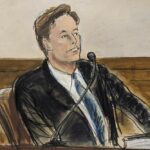 Musk defends his $55 billion pay award in a Delaware court, in a suit brought by Gregory Vallo, a Tesla shareholder. The plaintiff alleges that the compensation package, which called for Musk to reap billions if Tesla hit certain market capitalization and operational milestones, was approved by Tesla board members who had conflicts interest due to personal and professional ties to Musk.
Musk defends his $55 billion pay award in a Delaware court, in a suit brought by Gregory Vallo, a Tesla shareholder. The plaintiff alleges that the compensation package, which called for Musk to reap billions if Tesla hit certain market capitalization and operational milestones, was approved by Tesla board members who had conflicts interest due to personal and professional ties to Musk.
Musk would receive the full benefit of the pay plan, $55.8 billion, only if Tesla hit a market capitalization of $650 billion and unprecedented revenue and earnings within a decade. To date, Tesla, under Musk’s management, has achieved all 12 of the market capitalization milestones and 11 operational milestones, providing Musk over $52.4 billion in stock option gains
Musk says he did not dicate the terms of the package, or attend any meetings at which the plan was discussed by the board, its compensation committee, or a working group that helped develop it.
I was entirely focused on the execution of the company,
Varallo also questioned Musk about how he splits his time among Tesla and his other companies. Musk said he never intended to be CEO of Tesla, and that he didn’t want to be chief executive of any other companies either, preferring to see himself as an engineer instead.
The suit also alleges the shareholder vote approving the compensation plan was based on a misleading proxy statement.
Twitter: Musk under federal investigation
In a court filing, Twitter says Musk is being investigated by federal authorities over his conduct in his $44 billion takeover deal for the company. The company does not say what the exact focus of the probes is, nor which federal authorities are conducting them. The court filing asks Musk’s attorneys to provide documents that are being withheld, which Musk’s attorney’s say contain ‘privileged’ information. Twitter:
This game of ‘hide the ball’ must end.
An attorney for Musk:
[Twitter’s court filing is a] misdirection. It is Twitter’s executives that are under federal investigation.
SpaceX loses Starlink Mexican domain battle
SpaceX loses a cybersquatting challenge against StarGroup, a 60-year-old Mexican telecommunications and entertainment services company in Mexico that registered the domain name starlinkmx.com. StarGroup’s brands include Star TV, Star Go, Star Line and Star Group.
The company applied for trademarks in Mexico for Starlink for communications starting in 2015. In November 2017, SpaceX legal representatives contacted StarGroup, initially not naming its client, to see if StarGroup would sell its Star Line and Starlink marks.
In finding for StarGroup, the WIPO panel noted that the company’s brand name starts with star, and it has a history of naming products that start with star. The panel also pointed out that StarGroup applied for trademarks in 2015, which predates SpaceX’s intentions to use the mark. The panel found that SpaceX did not show that StarGroup lacked rights or legitimate interests in the domain and did not show that StarGroup registered the domain in bad faith.
Musk claims Twitter made whistleblower destroy evidence
Musk’s lawyers accuse Twitter’s top two lawyers, Vijaya Gadde and Sean Edgett, and Chief Privacy Officer Damien Kieran, along with CEO Parag Agrawal, of seeking to cover up the violations of the legal settlements with government regulators by ordering the Twitter whistleblower, Peter Zatko, to destroy 10 handwritten notebooks and deleted 100 computer files.
Twitter’s attempt to buy Mr. Zatko’s silence failed, but Twitter achieved its secondary aim of ensuring Mr. Zatko’s corroborating evidence would never come to light. [The document-destruction order deprived Musk’s legal team of] critical corroborating evidence of Mr. Zatko’s allegations, which would support his account of key meetings and conversations relevant to this case.
Musk-Twitter trial stayed, deal must close Oct 28
Delaware Chancery Court Judge Kathaleen McCormick agrees to stay the Musk-Twitter trial, giving Musk until 5 pm on Oct. 28 to close the deal. Otherwise, she will set another trial date for next month. The proceedings had been set for Oct. 17. Twitter had argued that Musk should close the deal before the trial date.
This action is stayed until 5 p.m. on October 28, 2022, to permit the parties to close on the transaction. If the transaction does not close by 5 p.m. on October 28, 2022, the parties are instructed to contact me by email that evening to obtain November 2022 trial dates.
Twitter wants deal closed before trial date
Musk’s attorneys formally ask a judge to stay the trial, which is set to start Oct. 17. The Musk team say a close would be possible on or around Oct. 28. However, Twitter says Musk must close the deal before proceedings start on the 17th. Twitter;
At a minimum…Defendants should be arranging to close on Monday, October 10. But they aren’t. Instead, they refuse to commit to any closing date. They ask for an open ended out, at the expense of Twitter’s stockholders (who are owed $44 billion plus interest), all the while remaining free to change their minds again or to invent new grounds to avoid the contract. Until Defendants commit to close as required, Twitter is entitled to its day in Court….Defendants can and should close next week. Until they do, this action is not moot [as Musk’s motion insisted] and should be brought to trial.
Musk’s lawyers:
Twitter will not take yes for an answer. Astonishingly, they have insisted on proceeding with this litigation, recklessly putting the deal at risk and gambling with their stockholders’ interests.
Dorsey wanted Musk on Twitter’s board, but directors were too ‘risk averse’
According to texts revealed in discovery, Dorsey, the former CEO of Twitter, tried to get Elon Musk on Twitter’s board, but could not do so because he claimed the company’s directors were too risk averse. In a text message to Musk on March 26, Dorsey wrote:
The board is just super risk averse and saw adding you as more risk.
Dorsey said he thought the board’s approach “was completely stupid and backwards.” But said his power was limited because he only had one vote, and 3% of company, and no dual class shares. A little over a week later, Musk announced plans to join the board, before he decided to make an offer to buy the company.
